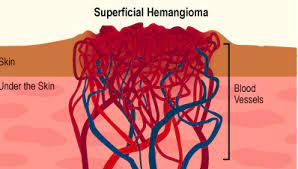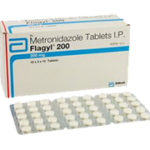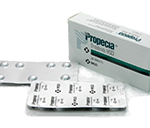What Is Propranolol?
Propranolol is a beta-blocker drug. It works by reducing the resting heart rate, the amount of blood pumped from the heart into the body, the minimum and maximum pressure and orthostatic hypotension. Propranolol is administered orally, usually in the form of capsules or liquid solution.
Propranolol is used in the treatment of tremors, angina, hypertension, heart rhythm abnormalities and other cardiovascular problems. It is also used in the treatment and prevention of heart attacks, to reduce the frequency and severity of migraines and in cases of hyperthyroidism, pheochromocytoma, menopause and anxiety.
Taking 80mg Propranolol may interfere with some laboratory tests. During the treatment it is good to avoid alcohol; it is also necessary to avoid getting up suddenly from a sitting or lying position, in order to avoid dangerous dizziness.
Propranolol Dosage
 When you receive a prescription drug, the dose is appropriate for you. Therefore, follow the instructions that appear on the label on the pharmaceutical packaging. Propranolol, taken by mouth with sufficient amount of water, is rapidly absorbed at the gastro-intestinal level, reaching maximum plasma concentrations in a very short time (1 – 2 hours). The various metabolites produced at the hepatic level are subsequently excreted via the urine. It is mainly metabolised in the liver, where through a first-pass effect it gives rise to pharmacologically active metabolites; bound to plasma proteins, it can then spread freely through the circulatory stream.
When you receive a prescription drug, the dose is appropriate for you. Therefore, follow the instructions that appear on the label on the pharmaceutical packaging. Propranolol, taken by mouth with sufficient amount of water, is rapidly absorbed at the gastro-intestinal level, reaching maximum plasma concentrations in a very short time (1 – 2 hours). The various metabolites produced at the hepatic level are subsequently excreted via the urine. It is mainly metabolised in the liver, where through a first-pass effect it gives rise to pharmacologically active metabolites; bound to plasma proteins, it can then spread freely through the circulatory stream.
Propranolol Dosage
Propranolol is usually taken twice a day. When treating high blood pressure and angina it is common to start with inderal dosage 160 milligrams a day. In irregular heart rhythms, 40-120 milligrams are usually taken daily, against tremors and migraine 120-160 milligrams daily.
Propranolol Uses
The therapeutic effects of propranolol, a non-cardioselective beta blocker with no intrinsic sympathomimetic activity, are mainly due to the cardiovascular action exerted through competitive inhibition against beta adrenergic receptors. This activity results in decreased frequency and cardiac output, an increase in the duration of the systole and a decrease in resting blood pressure; these effects allow a significant reduction in total oxygen consumption of the myocardium and cardiac work.
Another important activity, perhaps the main one, is the antiarrhythmic action of propranolol, which appears to be accomplished through a control of the discharge frequency of the cardiac conduction tissue.
The direct antihypertensive action, on the other hand, although widely observed in various clinical trials, has not yet been fully characterized.
Propranolol for Blood Pressure
Propranolol functions as a blood pressure treatment by blocking adrenaline from activating beta receptors throughout the heart and blood vessels. Doctors initiate propranolol dosage for blood pressure by prescribing 40 mg twice daily before adjusting the dosage to 120-240 mg daily based on patient response. Propranolol 20 mg functions as an initial dose for elderly patients and patients with liver impairment who need close blood pressure tracking. Therapeutic effects of propranolol for high blood pressure become fully visible after two to three weeks of daily medication use for most adult patients. Patients should take inderal (propranolol brand name) at the same times every day to achieve stable blood pressure control. Your doctor will modify your medication through blood pressure readings until most patients need reduced doses for maintaining stable blood pressure.
Propranolol In Alcohol Abstinence Symptoms
 Beta blockers can control some of the physical symptoms of anxiety, such as tremor, tachycardia and sweating – the symptoms associated with alcohol abstinence syndrome. Propranolol is the beta-blocker that is used most often for anxiety disorders, its most common use is for the treatment of heart disease and high blood pressure. This drug can help those people who have physical problems related to anxiety. For example, when a person with social phobia faces a stressful situation, such as a speech, or attending an important meeting, a doctor can prescribe a beta blocker. Taking the drug for a short period of time can help keep physical symptoms in check, waiting for a drug that treats anxiety to begin to take effect.
Beta blockers can control some of the physical symptoms of anxiety, such as tremor, tachycardia and sweating – the symptoms associated with alcohol abstinence syndrome. Propranolol is the beta-blocker that is used most often for anxiety disorders, its most common use is for the treatment of heart disease and high blood pressure. This drug can help those people who have physical problems related to anxiety. For example, when a person with social phobia faces a stressful situation, such as a speech, or attending an important meeting, a doctor can prescribe a beta blocker. Taking the drug for a short period of time can help keep physical symptoms in check, waiting for a drug that treats anxiety to begin to take effect.
Propranolol In Anxiety/Panic Attacks
Studies carried out and clinical efficacy include “The use of propranolol in the treatment of anxiety disorders” by Hillside J Clin Psychiatry. The scientific literature shows the efficacy of Propranolol in the treatment of anxiety disorders, although the molecular mechanism of action has not yet been clarified. Probably this effect seems to be linked to the action on the central nervous system, through a modest passage of the blood-brain barrier.
Propranolol In Hemangioma Treatment
Hemangiol is a medicine that contains the active substance propranolol. It is indicated in the treatment of children suffering from a proliferative infantile hemangioma, a benign tumor (abnormal growth of non-tumor tissue) of blood vessels. Hemangiol is used in infants with serious complications, including ulcers accompanied by pain, at risk of scarring and with difficulty breathing, which require systemic therapy (treatment that can have an effect on the whole organism). Treatment with Hemangiol should be started in children aged 5 weeks to 5 months.

The active substance in Hemangiol, propranolol, belongs to a group of medicines called beta-blockers, which have been widely used to treat a variety of conditions in adult patients, including heart disease and hypertension. Although the mechanism of action of Hemangiol in the proliferative infantile hemangioma is not precisely known, it is believed that more mechanisms are involved, including the narrowing of blood vessels and therefore the reduction of blood flow to hemangioma, the suppression of the formation of new blood vessels in the tumor mass, the induction of abnormal blood vessel cell death and the suspension of the effect of some proteins (called VEGF and bFGF), which are important for blood vessel growth.
Hemangiol was examined in one main study involving 460 children (aged between 5 weeks and 5 months at the start of therapy), suffering from a proliferative infantile hemangioma that required systemic therapy. The study compared different Propranolol doses with placebo (a dummy treatment); the main measure of effectiveness was the total or almost complete disappearance of hemangiomas after 6 months of treatment. Hemangiol, taken at a dose of 3 mg / kg per day (in two separate doses of 1.5 mg / kg) for 6 months, has been shown to be more effective than placebo. In about 60% (61 out of 101) of children treated with the most effective dose of Hemangiol (3 mg / kg / day for 6 months) the hemangiomas disappeared completely or almost completely, a result that was only observed in 4 approximately 2% of children treated with placebo.
Contraindications
Propranolol should not be taken in case of asthma or a strongly slowed heart rate. It is also contraindicated in case of some serious heart problems. Before taking it it is important to inform your doctor:
- of allergies to the active ingredient, its excipients or other drugs or foods
- of medicines, herbal medicines and supplements taken, in particular anticoagulants, antidepressants, heart or pressure medications, prostate drugs, FANs or steroid drugs
- if you suffer (or have suffered) from asthma, slow heartbeat that leads to fainting, heart problems, muscular disorders, bronchitis, emphysema or other respiratory problems, hypoglycemia or diabetes, low blood pressure, liver or kidney disease, thyroid disorders , pheochromocytoma or circulation problems
- in case of pregnancy or breastfeeding
It is also necessary to inform physicians, surgeons and dentists of the intake of Propranolol.
Propranolol is contraindicated in patients with bronchial asthma or bronchopathies, hypersensitivity to one of its components, marked bradycardia, cardiogenic shock, hypotension, metabolic acidosis, renal failure, atrioventricular block, pheochromocytoma monotherapy, prinzmetal angina and sinus node disease.
Concomitant use of dihydropyridine may determine the incidence of hypotensive crises;
The administration of cimetidine, hydralazine, ergotamine-based drugs, dihydroergotamine, prostaglandin inhibitors, glycosidic drugs, antiarrhythmics, alcohol and drugs with antidepressant action, can alter the normal pharmacokinetic characteristics of Propranolol, causing an alteration of biological effects with increased incidence of adverse reactions.
Furthermore, given a potential increase in the insulin effect and the masking action of propranolol on some signs of hypoglycemia, it is necessary to monitor blood glucose levels in diabetic patients and possibly correct the hypoglycemic drug dosage.
Propranolol Side Effects
Possible adverse effects of Propranolol include:
- diarrhea
- nausea
- vomiting
- constipation
- stomach cramps
- insomnia
- fatigue
You should contact a doctor immediately if you experience:
- slow or irregular heartbeat
- lightheadedness
- wheezing or difficulty breathing
- shortness of breath, swelling, rapid weight gain
- sudden weakness, vision problems or loss of coordination
- cold hands or feet
- depression, confusion, hallucinations
- nausea, pain in the upper part of the stomach, itching, feeling tired, loss of appetite, dark urine, clay-colored stools, jaundice
- headache, hunger, weakness, sweating, confusion, irritability, dizziness, rapid heartbeat, agitation
- in children: pallor, cyanosis or redness of the skin, sweating, crying, refusal of food, cold, drowsiness, weak or shallow breathing, convulsions or loss of consciousness
- severe skin reactions
Posted in Heart Disease
(1 voices, average: 5 of 5) 8690 views























